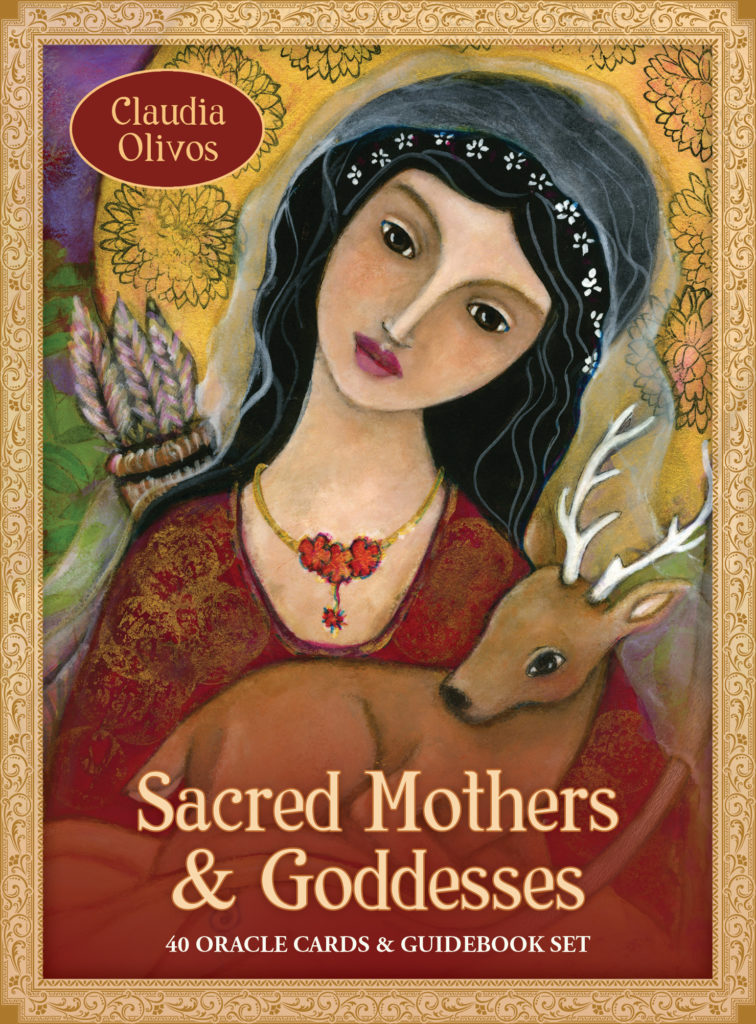Goddess Asherah is a figure from ancient Canaan, a Sacred Mother and Goddess associated with fertility, love, and nurturing. She is considered Palestinian due to her historical significance in the region known as Palestine, and Syria which encompassed parts of modern-day Israel, the Palestinian territories, and neighboring areas. Asherah’s roots run deep in the land’s cultural and religious heritage, making her a symbol of indigenous spirituality.
The connection between Asherah and the conflict in Gaza today lies in the historical and cultural ties to the land. As a deity worshipped by ancient Canaanites, who inhabited the region thousands of years ago, Asherah represents a connection to the land and its people. The ongoing conflict in Gaza often involves disputes over territory, identity, and heritage, all of which are intertwined with the land’s rich history and religious significance.
Throughout history, Asherah was worshipped by various peoples in the ancient Near East, including the Canaanites and Phoenicians. She was often depicted as a motherly figure, sometimes portrayed with multiple breasts symbolizing fertility and abundance. Asherah was closely associated with trees, particularly the sacred groves where her followers would gather for worship. The serpent also held symbolic significance in her mythology, representing wisdom, fertility, and renewal.
In Jewish tradition, the prohibition against cutting down fruit trees, as mentioned in Deuteronomy 20:19-20, is linked to reverence for the land and its natural abundance which is rooted in the ancient Canaanite reverence for Asherah and her association with trees. By preserving fruit trees, one honors the sacred connection between the land, its people, and the Goddess Herself.
A wonderful offering to Goddess Asherah is to plant a fruit tree, especially an Olive or Fig tree.
Offerings for Asherah’s altar may include symbols of fertility and abundance, such as olives, figs, almonds, grapes, grains, flowers, olive oil, nuts and honey. Additionally, offerings of milk or wine were common in ancient rituals dedicated to her. The exact offerings may vary depending on personal or cultural interpretations of her symbolism and significance.
This year for Christmas, I made an offering to Asherah by preparing Palestine’s national dish – with each ingredient, each step- I prayed for all the families in Gaza. I prepared a traditional Palestinian dish called: Musakhan. This dish features sumac-seasoned roasted chicken served over flatbread with caramelized onions and pine nuts. It’s a flavorful and aromatic dish that pays homage to the region’s culinary heritage. Do it as an offering, it’s a lot of work, but worth every second!
Ingredients:
- 1 whole chicken, cut into pieces
- 4 large onions, thinly sliced
- 3 tablespoons olive oil
- 2 tablespoons sumac
- 1 teaspoon ground cumin
- 1 teaspoon ground coriander
- Salt and black pepper to taste
- Pine nuts for garnish
- Flatbread or pita bread
Instructions:
- Preheat the oven to 375°F (190°C).
- In a large bowl, mix the chicken pieces with sumac, cumin, coriander, salt, pepper, and 2 tablespoons of olive oil until well coated.
- Place the chicken pieces on a baking sheet and roast in the preheated oven for about 30-40 minutes or until cooked through and golden brown.
- While the chicken is roasting, heat the remaining olive oil in a skillet over medium heat. Add the sliced onions and cook, stirring occasionally, until caramelized and golden brown, about 20-25 minutes.
- Once the chicken is cooked, arrange the flatbread or pita bread on a serving platter.
- Place the roasted chicken pieces on top of the bread.
- Spread the caramelized onions over the chicken.
- Sprinkle pine nuts on top for garnish.
- Serve hot and enjoy the delicious flavors of Musakhan, a traditional Palestinian dish infused with the tangy taste of sumac.
Accompany the meal with/and offer a beverage to Goddess Asherah, traditionally drank hot or cold, Palestinian Mint Tea:
Ingredients:
- Fresh mint leaves
- Water
- Sugar (optional)
Instructions:
- In a teapot, place a handful of fresh mint leaves.
- Bring water to a boil and pour it over the mint leaves in the teapot.
- Let the mint steep for about 5-7 minutes, depending on desired strength.
- If desired, add sugar to taste.
- Strain the tea into cups and serve hot.
This refreshing and aromatic mint tea is a perfect complement to the rich flavors of Musakhan, offering a delightful sensory experience for both the palate and the spirit.
Divine Mother Asherah,
We come before you with heavy hearts, seeking solace and peace for the land of Gaza. Your presence, gentle and nurturing like the olive trees that dot the landscape, brings hope amidst the turmoil.
We pray for the children of Gaza, innocent souls caught in the crossfire of conflict. May your loving embrace shield them from harm, and may they find comfort in the midst of chaos.
Goddess of abundance, we beseech you to shower your blessings upon the olive trees of Gaza, symbols of resilience and sustenance. May they continue to stand tall, rooted in the earth, bearing witness to the enduring spirit of the people.
Grant wisdom to those who hold power and influence, that they may choose the path of peace and reconciliation over the ravages of war. Help them see the humanity in every soul, regardless of race, religion, or creed.
As we lift our voices in prayer, may your divine presence infuse the hearts of all who inhabit this troubled land. Let your love be a beacon of hope, guiding us towards a future where peace reigns supreme.
In your name, O Asherah, we pray for Gaza. May peace prevail now and forevermore. Amen.





